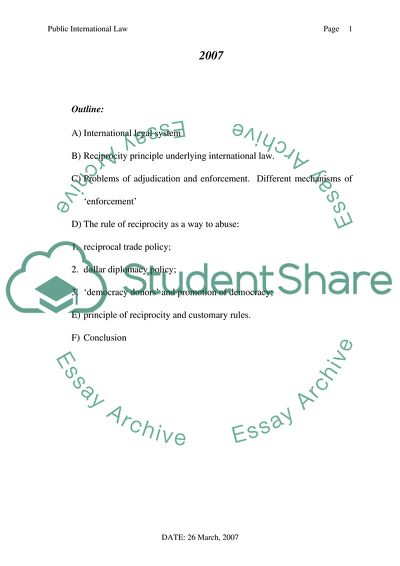Cite this document
(Public International Law Assignment Example | Topics and Well Written Essays - 2000 words - 1, n.d.)
Public International Law Assignment Example | Topics and Well Written Essays - 2000 words - 1. https://studentshare.org/law/1706833-public-international-law
Public International Law Assignment Example | Topics and Well Written Essays - 2000 words - 1. https://studentshare.org/law/1706833-public-international-law
(Public International Law Assignment Example | Topics and Well Written Essays - 2000 Words - 1)
Public International Law Assignment Example | Topics and Well Written Essays - 2000 Words - 1. https://studentshare.org/law/1706833-public-international-law.
Public International Law Assignment Example | Topics and Well Written Essays - 2000 Words - 1. https://studentshare.org/law/1706833-public-international-law.
“Public International Law Assignment Example | Topics and Well Written Essays - 2000 Words - 1”. https://studentshare.org/law/1706833-public-international-law.


